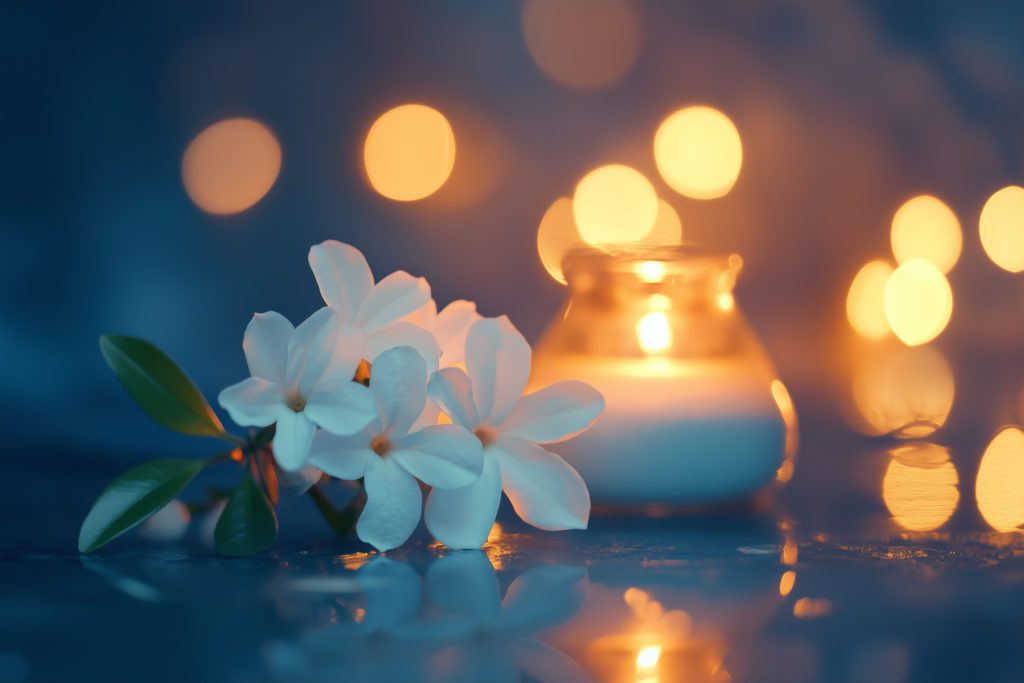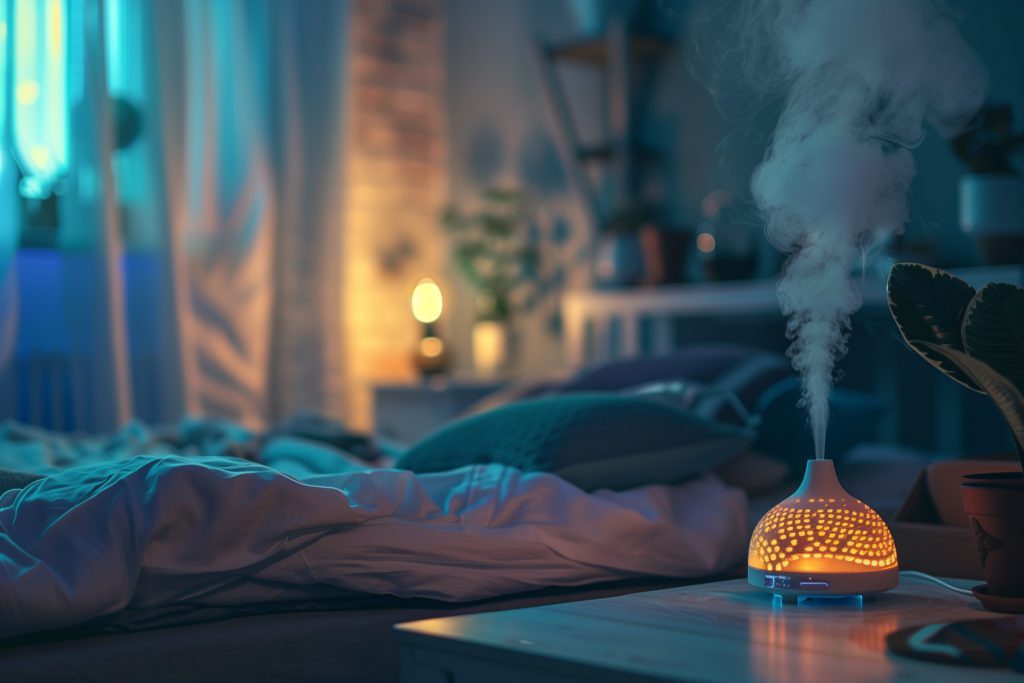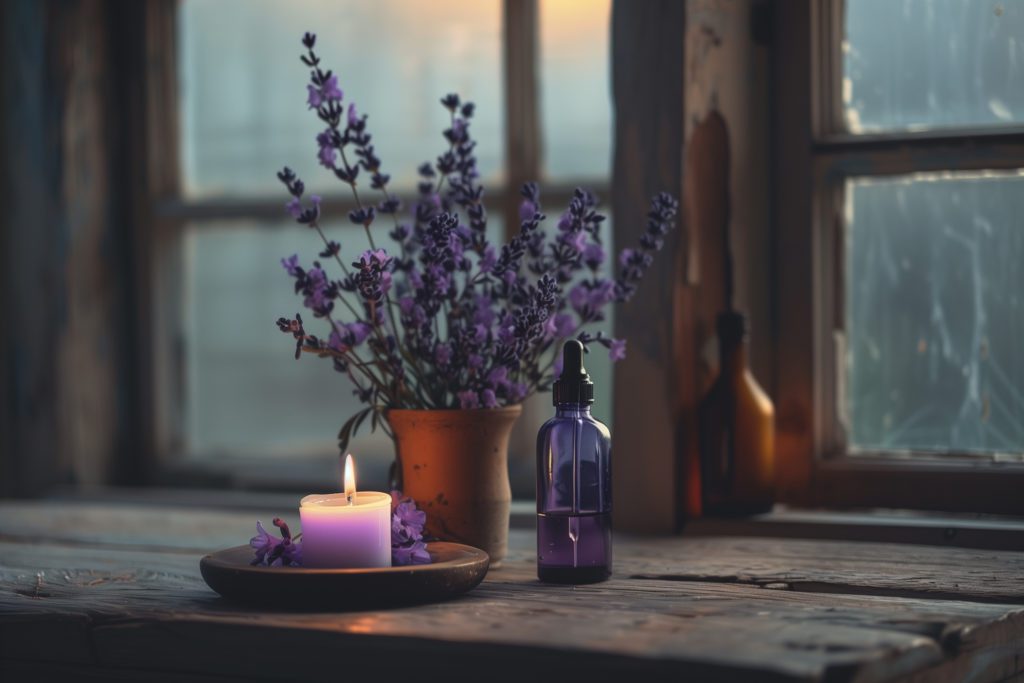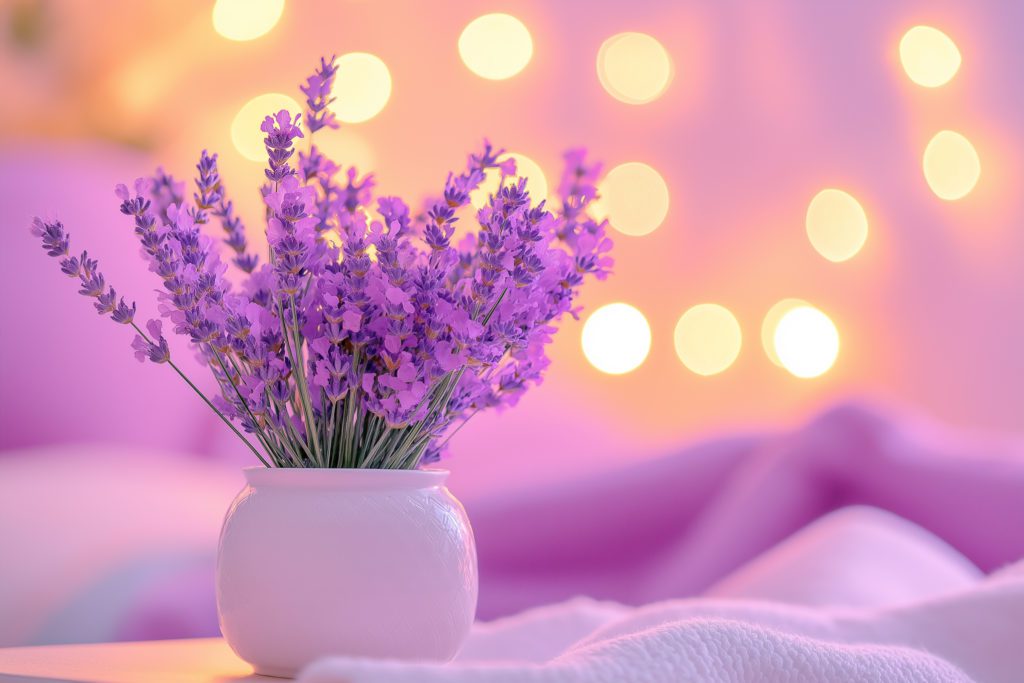
Herbal Remedies for Insomnia: Plants That Promote Sleep
Herbal remedies such as valerian root, chamomile, passionflower, ashwagandha, and hops may help improve sleep so you wake up feeling refreshed.

You crawl into bed feeling exhausted after a long day. However, your mind is racing. You stare at the ceiling and keep tossing and turning. Before you know it, it’s 4 AM and you haven’t slept a wink.
If you are having trouble falling asleep, you’re not alone. Most adults need between seven to nine hours of sleep a night. However, about a third of adults in the U.S. get less sleep than this a night.
If you experience insomnia, you’ll want to see your doctor to rule out medical problems that could be interfering with sleep. They may recommend cognitive and behavioral therapy for insomnia (CBT-I) and lifestyle changes.
But, herbal remedies may also help improve your sleep. Unlike prescription sleeping pills, natural remedies usually have a low risk of side effects and don’t typically lead to dependence.
Herbal Remedies for Insomnia
Here are five science-backed herbal remedies that may help you beat insomnia and achieve a deep sleep.
Valerian Root (Valeriana officinalis)
Valerian root is a tall flowering grassland plant native to Europe and parts of Asia. It has a long history of use as a sedative and is often referred to as “nature’s Valium.”
A systematic review of multiple studies has shown that this plant can reduce the time that it takes to fall asleep. It also improves sleep quality. Research also suggests that valerian root may be helpful for anxiety and depression, as well.
Use: Taking 300-600 mg by mouth daily has been found to improve sleep quality. Valerian root should be taken at least 30 minutes before bed. You may need to use valerian root for two or more weeks before you notice improvements in sleep.
Passionflower (Passiflora incarnata)
One variety of passionflower (Passiflora incarnata) has traditionally been used to help with insomnia. It contains chemicals that help you feel more relaxed and sleep better.
Passionflower increases levels of gamma aminobutyric acid (GABA) in the brain. GABA is an inhibitory neurotransmitter. So, increasing it lowers the activity of certain brain cells, causing relaxation.
Most of the studies on passionflower’s effect on sleep have been conducted on animals. One study found that passionflower significantly increased slow wave sleep in rats. It also helped them fall asleep quicker.
Another animal study found that passionflower decreased the amount of time it took to fall asleep and increased the length of sleep.
Human studies on passionfruit have also shown positive effects on sleep. A double-blind, placebo-controlled study examined the effects of herbal passionfruit tea on sleep in 41 adults. The participants consumed passionflower tea every night before bed for a week. They had significantly improved sleep quality after a week.
Use: Most people use passionflower in the form of tea. In one clinical study, participants drank a 250 mL dose of passionflower herbal tea before bed.
Chamomile (Matricaria chamomilla)
Chamomile is part of the Asteraceae (daisy) plant family. It has been used for thousands of years for sleep. It is widely regarded for its sedative properties. It’s thought that these effects are due to the fact that apigenin, one of the chemicals in chamomile, binds to benzodiazepine receptors in the brain.
A meta-analysis of 12 studies found that using chamomile is an effective and safe way to improve sleep quality.
Use: For sleep, chamomile is often used as a tea, which is brewed from dried chamomile flowers. A 200 mg dose of chamomile given in the form of a capsule was found to produce significant improvements in sleep quality among older adults.
Hops (Humulus lupulus)
Hops refer to the flowers that come from the plant Humulus lupulus. They’re most commonly found in beer. Hops have been used for many years for sleep.
Early studies found little evidence that hops improved sleep quality. But, new research suggests that hops may help with sleep by regulating the sleep-wake cycle, increasing GABA activity, and increasing levels of melatonin.
One study found that women who drank non-alcoholic beer containing hops at bedtime showed marked improvement in sleep quality and also had reduced anxiety levels. A three week study examined the effects of hops on the sleep of stressed college students. Sleep quality improved and the amount of time it took to fall asleep decreased.
Studies suggest that hops may be even more effective for sleep when combined with valerian, another herbal remedy for sleep.
Use: In studies, 2 mg of dried hops was found to produce sedative effects.
Ashwagandha (Withania somnifera)
Ashwagandha is an evergreen shrub native to parts of Africa, India, and the Middle East. It’s well-known for its ability to reduce stress and anxiety. However, it also has some positive effects on sleep. In fact, the name “somnifera” comes from the Latin word for sleep-inducing. Ashwagandha promotes sleep by relaxing you. It also causes drowsiness.
A 2021 study, published in the Journal of Ethnopharmacology, found that ashwagandha root extract significantly improved the sleep quality and increased the overall total sleep time for participants with insomnia.
Another study looked at the effect of ashwagandha on sleep in 150 healthy participants who suffered from poor sleep quality. Participants reported an improvement of more than 72 percent in sleep quality after six weeks. They also had an increase in total sleep time and an improvement in sleep efficiency.
There were no significant adverse side effects reported in either study.
Use: In one study, 120 mg of standardized ashwagandha extract taken once daily was beneficial for sleep.
Beyond Herbal Remedies
Natural herbal remedies can be helpful for sleep but they can’t replace good sleeping habits, such as:
- Following a consistent sleep schedule - Go to bed and wake up at the same time each day.
- Exercising on a regular basis - Studies have shown that regular exercise can help with sleep. Just make sure you do more intense exercise earlier in the day so it doesn’t interrupt your sleep.
- Paying attention to your sleep habits - Use Pillow to track your sleep data. Doing so can help you identify your sleep patterns and plan for better sleep.
- Eating at least three hours before bedtime - Also, make sure your last meal of the day is a lighter one. This can help you avoid acid reflux and other digestive problems at night.
Takeaway
Natural sleep remedies may help you fall asleep faster and improve your overall sleep quality. While all of the herbal remedies above have scientific evidence to support their benefit on sleep, none are regulated by the U.S. Food and Drug Administration (FDA).
Before taking any supplement for sleep, talk with your doctor about the benefits and risks of natural sleep remedies.
FAQ
Can herbal remedies for insomnia interact with medications?
Yes, herbal remedies can interact with certain medications, reducing it's efficacy or even causing certain side effects.It's crucial to consult your healthcare provider before combining herbal supplements with prescription medications to avoid potential adverse interactions
Is it true that Valium comes from valerian root?
No, Valium does not come from valerian root. While valerian root is a natural herb used for its sedative properties, Valium (diazepam) is a synthetic drug classified as a benzodiazepine. However, both share some similarities in their calming effects, which is why valerian root is sometimes referred to as "nature's Valium."
Are there any side effects of herbal sleep aids?
While many herbal sleep aids are considered safe, they can cause side effects in some individuals.For example, valerian root may lead to headaches, dizziness, or stomach problems. It's important to be aware of these potential side effects and consult with a healthcare professional before use.
Can I combine different herbs to improve sleep?
Combining certain herbs, like chamomile and lavender, can enhance relaxation. However, mixing stronger sedative herbs, such as valerian and kava, should be done cautiously, as it may cause excessive sedation. Consulting a healthcare professional ensures safe and effective use of multiple herbs.
Can lifestyle changes enhance the effectiveness of herbal remedies?
Yes, combining herbal remedies with good sleep hygiene practices enhances their effectiveness. Maintaining a consistent sleep schedule, creating a calming bedtime routine, and avoiding caffeine or electronics before bed can amplify the calming effects of herbs like chamomile and valerian.
Are there dietary considerations when using herbal sleep aids?
Diet plays a role in the effectiveness of herbal remedies. Avoid consuming caffeine, alcohol, or heavy meals before bedtime, as they can counteract the benefits of sleep-promoting herbs.
How should herbal remedies be stored for potency?
To maintain their potency, herbal remedies should be stored in airtight containers in a cool, dry, and dark place. Exposure to heat, light, or moisture can degrade the active compounds in herbs, making them less effective over time.
Is there scientific evidence supporting herbal remedies for insomnia?
Studies have shown promising results for remedies like valerian root and chamomile. Valerian may help reduce the time it takes to fall asleep, while chamomile has been linked to improved sleep quality. However, more research is needed to confirm their efficacy and establish standard dosages.

Written by
Emily Mendez
Emily Mendez is a former therapist and mental health author. She is one of the leading voices in mental health. Emily's writing has appeared in eCounseling, SonderMind, and more. Emily is frequently interviewed by Healthline, Fatherly, INSIDER, Family Circle, and other national media for her advice and expert opinion on the latest mental health topics.
Download Pillow
Get help
Press & News
Legal
Connect
X (Twitter)
Company
Copyright © Neybox Digital Ltd.



